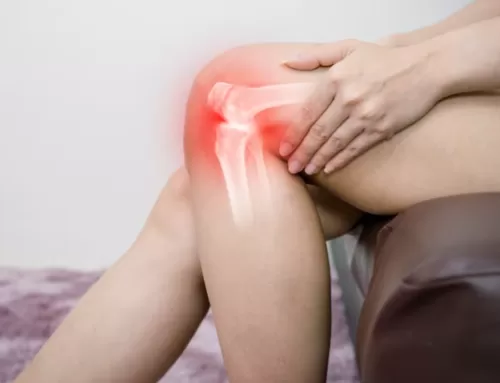Do you suffer from chronic pain? If so, you may be wondering how you can get diagnosed. Unfortunately, diagnosing chronic pain can be difficult because of so many different causes. In addition, the process of getting a diagnosis for chronic pain can be complex, so people often go undiagnosed for years.
Chronic pain is a complex condition. There are many different causes of chronic pain, and each person’s experience with it is unique. There is no one-size-fits-all approach to diagnosing and treating chronic pain. The best approach is usually a collaborative effort between you and your doctor or chronic pain chiropractor.
 The Complete Guide to Chronic Pain Diagnoses and Treatment Options
The Complete Guide to Chronic Pain Diagnoses and Treatment Options
What is Chronic Pain?
Chronic pain is a condition that lasts for an extended period. The pain experienced is usually severe and may not go away. There are many different causes of chronic pain, including medical conditions, injuries, and certain diseases.
The most common causes of chronic pain are:
– Injuries such as a car accident or a broken bone
– Diseases such as arthritis, diabetes, cancer, and fibromyalgia
– Psychological problems such as depression, anxiety, and post-traumatic stress disorder (PTSD)
– Other issues such as obesity and heart disease Injuries
– Car accidents
– Broken bones such as in the hand, foot, or leg
– Sprains and strains
– Other injuries such as a burn
Chronic pain can significantly reduce the quality of life and make even simple tasks difficult to accomplish. Treatment options vary depending on the underlying cause of the pain but may include prescription medications, physical therapy, or surgery.
How Does a Person’s Body Respond to Chronic Pain?
Pain is a multi-dimensional experience. The person’s body responds to chronic pain in ways that can be both physical and emotional.
There are many different types of chronic pain, each with its own set of symptoms. For example, people with arthritis may experience joint pain, stiffness, and swelling, while those from fibromyalgia may experience widespread muscle pain.
The way your body reacts to long-term physical discomfort is influenced by various factors, including the type of chronic pain you have; the severity of your condition; your age; and your emotional state.
How is a Person Diagnosed with Chronic Pain?
A person with chronic pain must be diagnosed properly to get the right treatment for their condition. Chronic pain comes in different types and there are also different ways to diagnose it. The diagnosis process can vary depending on what type of chronic pain the person has. For example, someone with joint or muscle pain may be diagnosed by an orthopedist or a neurologist, while a neurosurgeon or anesthesiologist may diagnose someone with nerve pain.
The first step in getting diagnosed with chronic pain is to see a doctor. Your doctor will likely perform a physical exam and ask about your symptoms. They may also order tests, such as blood work or imaging scans to help determine the cause of your pain. If your doctor suspects that you have chronic pain, they may refer you to a specialist, such as a neurologist or pain management doctor.
If you are seeing a chronic pain chiropractor, they will likely ask about your symptoms and medical history. The chiropractor may also order tests, such as X-rays or MRI scans, to further study your condition. If the chiropractor suspects that you have chronic pain, they may refer you to a specialist.
Common Chronic Pain Treatments
One chronic pain treatment option is chiropractic care. Chiropractors specialize in diagnosing and treating conditions that affect the musculoskeletal system, including chronic pain. They use a variety of techniques to help relieve pain and improve function, including spinal manipulation, mobilization, and massage. In some cases, chiropractic care may also be helpful in treating chronic headaches and other conditions. If you’re considering chiropractic care for chronic pain, be sure to talk to your doctor about the possible benefits and risks.
Another chronic pain treatment option is medication. There are a variety of medications available to treat chronic pain, including over-the-counter and prescription drugs. Some people find relief from chronic pain with medications such as ibuprofen or acetaminophen, while others require prescription drugs such as opioids or antidepressants. It’s important to work with your doctor to find the medication that best suits your needs.
Finally, some people may find relief from chronic pain through alternative treatments such as acupuncture or massage therapy. These treatments can be helpful for some people, but it’s important to talk to your doctor before starting any new treatment.
How does a Chronic Pain Chiropractor Help?
If you suffer from chronic pain, you may be wondering how a chiropractor can help. Chronic pain chiropractors are trained to treat conditions that cause chronic pain, such as headaches, back pain, and neck pain.
Spinal manipulation is the most common technique used by chronic pain chiropractors and is thought to help relieve pain by correcting misalignments in the spine. Mobilization is a technique that uses gentle stretching and pressure to move joints beyond their usual range of motion, while massage helps to relax tight muscles and improve blood flow. All of these techniques can help reduce inflammation and pain and improve movement and function.
There are many types of chronic pain, but they all have one thing in common – they stay with you. The body and mind are complex, and chronic pain symptoms can be overwhelming. When it becomes difficult to function in day-to-day life, it is time to seek help. Chiropractors are experts in neuromusculoskeletal pain treatments and offer a variety of therapies and adjustments to people struggling with pain.
There are many benefits to chronic pain chiropractors. Some of the most notable benefits include:
– Chronic pain chiropractors can help reduce inflammation in the body, which is often a contributor to chronic pain.
– Chronic pain chiropractors can help improve mobility and range of motion.
– Chronic pain chiropractors can help improve posture and alignment, which can also help with reducing chronic pain.
– Chiropractic care has been shown to be helpful for conditions such as headaches, neck pain, back pain, and carpal tunnel syndrome.
Chiropractors are experts when it comes to chronic pain relief. If you’re struggling with long-term pain, we recommend reaching out for help. Contact us at Peak Potential Family Chiropractic – Houston Heights and let us show you how chronic pain chiropractic care can change your life!






